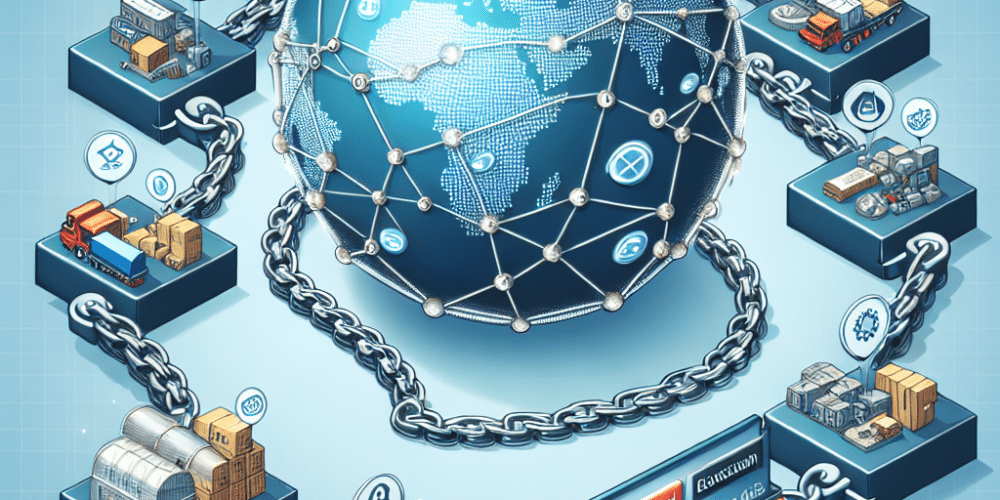In an unprecedented move set to reshape the retail industry, Walmart announced today that it is fully integrating blockchain technology into its global supply chain operations. This strategic decision is aimed at boosting transparency, enhancing food safety, and improving data management across its vast network. The announcement was made via a press release early this morning and already stakeholders are buzzing about the potential impacts.
Walmart, known for its massive global presence, handles a complex supply chain that includes thousands of suppliers and millions of products. By adopting blockchain technology, the corporation hopes to provide unparalleled transparency into the journey products take from farm to store shelves. This move is not just about technological upgrades; it’s poised to fundamentally alter how consumers perceive product safety and reliability.
The blockchain system will work by creating a decentralized ledger that records every transaction or interaction with a product, from its origin to the end consumer. This allows for real-time tracking and the prevention of any unauthorized alterations to data, ensuring that all product information is accurate and unchangeable. Such an ecosystem could significantly mitigate risks such as contamination, counterfeit goods, and logistical inefficiencies.
“Integrating blockchain technology into our supply chain allows us to create a ‘digital passport’ for products, giving each item a unique identity,” explained Sarah Smith, Blockchain Initiative Director at Walmart. “It empowers us to see the complete history of a product including where it was grown, how it was processed, and how it was handled before reaching our shelves.”
This initiative by Walmart could potentially set a new industry standard, prompting other retailers to follow suit in the burgeoning field of blockchain. The retail giant has partnered with IBM and other technology innovators to roll out this platform, which is already being viewed as one of the most significant applications of blockchain technology in mainstream business practices.
The implications of Walmart’s blockchain integration extend beyond operational efficiency and consumer safety. They also correlate with broader trends towards sustainability and ethical sourcing. With improved traceability, Walmart can ensure compliance with environmental and social standards at every step of the supply chain. This could lead to better practices industry-wide, as suppliers are held to higher standards.
However, the introduction of this technology also presents challenges, primarily relating to scale and security. Blockchain networks can be incredibly secure, but they require sophisticated setup and maintenance to prevent vulnerabilities. Moreover, the sheer size of Walmart’s supply chain could require unprecedented levels of data processing capability within a blockchain framework.
Experts suggest that the initial rollout is likely to be gradual. “Walmart will need to onboard thousands of suppliers, each with different levels of technical prowess and readiness,” noted blockchain analyst, Mark Teller. “We can anticipate a learning curve and an adaptation period before the system operates at full scale.”
In the financial markets, reactions were tentatively optimistic. Walmart’s stock saw a modest uptick following the announcement, as investors processed the potential long-term benefits against the upfront costs of adopting such a system. Analysts project that if Walmart can successfully implement this technology, it could not only revolutionize its operations but also encourage similar adaptations across other sectors.
Looking ahead, the global retail landscape appears poised for a deep and broad transformation driven by digital technologies like blockchain. As one of the first major companies to take such a leap, Walmart is not just influencing market trends; it’s setting a new blueprint for how global supply chains could operate in the future.
This development marks a crucial intersection of technology and retail, highlighting the potential of blockchain to bridge gaps between digital innovation and practical business applications. As the project unfolds, it will undoubtedly provide key insights and lessons for both the tech and retail sectors, potentially catalyzing further technological adoption on a global scale.




